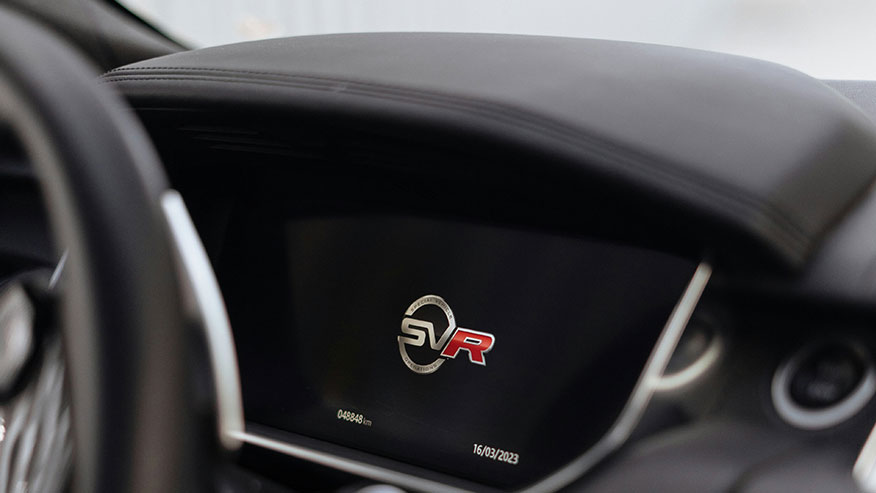
Critical Indicators Your Range Rover Sport Engine Requires Attention
Owning a Range Rover Sport is a statement of luxury and performance. However, like any high-end vehicle, it demands attention to keep it running smoothly. If you're noticing any changes in how your car performs, it might be time to check the engine. Finding a "Range Rover Sport Engine for Sale" may cross your mind if you encounter serious issues. This article explores the top signs. They show that your Range Rover Sport engine needs attention. Let's delve into what you should look out for.
First off, recognising early signs of engine trouble can save you from hefty repair bills. Range Rover engines are sophisticated pieces of automotive engineering. They require regular maintenance to function optimally. Paying attention to subtle changes in performance can be the difference between a minor fix and needing a new engine.
You own a Range Rover Sport. This is particularly true for models like the Sport HSE or the dynamic 2016 edition. Staying informed about potential issues is crucial. Regular checks and understanding common problems can greatly enhance your driving experience. Keeping your luxury SUV working well maintains its resale value. It also ensures safety and reliability on the road.
Decreased Performance
A noticeable drop in performance is a clear indicator that something is amiss. If your Range Rover Sport doesn't accelerate as swiftly or feels sluggish, it's time to investigate. Decreased performance often signals issues with the engine's components, such as the timing chain or spark plugs.
Engine components wear out over time. Regular upkeep, including oil changes and checking spark plugs, can prevent performance dips. However, if problems persist, visiting a service centre is wise. They can diagnose and address any underlying issues.

Decreased performance can also hint at more serious problems. For instance, if your Sport HSE feels less responsive, it could be due to timing chain issues. This is a common problem that affects the overall driving experience. Early detection and repair are key to avoiding engine failure.
Unusual Noises
Unusual noises coming from your engine should never be ignored. Knocking, whining, or hissing sounds are alarming. They often indicate that parts within the engine, like rod bearings or the timing chain, are not working properly.
A whining noise might suggest a problem with the vehicle's lubrication system. It's crucial to check the oil level and pressure. Lack of lubrication can cause significant engine damage. Consulting a mechanic at the first sign of unusual noises can save you from expensive repairs.
Knocking sounds, especially, are a red flag. They can indicate that the engine's internal components are wearing out. If you hear these sounds, don’t hesitate to visit a repair shop. Timely intervention can prevent further damage.
Warning Lights
The dashboard is your first line of defence against engine trouble. Warning lights are designed to alert you to potential problems. They include the check engine, oil pressure, and dynamic stability control lights. Ignoring these lights can lead to serious issues, including engine failure.

The check engine light can indicate a range of issues, from a loose gas cap to malfunctioning sensors. It's essential to diagnose the cause promptly. A diagnostic test at a dealership or service centre can identify the specific problem.
When the oil pressure light comes on, it's a serious warning. It indicates that the engine is not receiving enough lubrication. Driving under these conditions can cause the engine to overheat and fail. Stop driving immediately and seek professional help.
Rough Idling
Rough idling, where the engine runs unevenly or shakes when you’re driving or at a stop, is a sign of trouble. It could be due to worn spark plugs, a clogged filter, or issues with the fuel injector. These components are vital for smooth operation.
Maintaining smooth operation requires regular maintenance. Replacing spark plugs and ensuring the fuel system is clean can prevent rough idling. However, if these measures don’t improve the situation, it might be time to consult a technician.
Rough idling can also indicate more serious problems, like issues with the engine's timing belt or air suspension. A thorough check-up by a qualified mechanic can pinpoint the exact cause and recommend the necessary repairs.
Increased Fuel Consumption
If you notice your Range Rover Sport is guzzling more fuel than usual, it's a sign something's not right. Increased fuel consumption can indicate problems with the fuel injector or oxygen sensors. It affects efficiency and can drive up costs.
Regular servicing can keep the fuel system in good condition. However, if fuel consumption spikes, a more detailed inspection might be needed. A mechanic can assess whether components like the injector or sensor need replacement.
Keeping an eye on fuel consumption is not just about saving money. It's also about ensuring your vehicle runs efficiently. Ignoring signs of increased fuel usage can lead to more significant issues down the line.
Visible Smoke
Visible smoke from the exhaust is a cause for concern. Blue smoke indicates burning oil, while white smoke suggests a coolant leak. Both scenarios point to potential engine damage.
Burning oil might mean worn-out components inside the engine, like seals or rings. These parts ensure oil doesn't leak into combustion chambers. Replacing them promptly can prevent more severe engine problems.
Coolant leaks, signalled by white smoke, can lead to overheating. Ensuring the cooling system, including hoses and the radiator, is intact is crucial. Leaks should be addressed immediately to avoid overheating and engine damage.
Oil Leaks
Oil leaks are a serious issue that shouldn't be ignored. If you spot oil under your vehicle, it's a sign of wear and tear. Seals and gaskets can deteriorate over time, leading to leaks.
Addressing oil leaks early can prevent bigger problems. Leaked oil can cause engine components to wear out faster. It can also lead to overheating and, ultimately, engine failure.
Regular checks for signs of oil on the ground where you park can help catch leaks early. A mechanic can replace worn seals and gaskets, ensuring your engine stays lubricated and runs smoothly.
Difficulty Starting
Starting issues can be frustrating and indicate problems with the engine or electrical system. If your Range Rover Sport struggles to start, it could be due to a weak battery, faulty starter, or problems with the fuel system.
A weak battery is a common cause of starting problems. Ensuring your battery is in good condition and replacing it, when necessary, can prevent issues. However, if the problem persists, further investigation is needed.
Difficulty starting might also point to a malfunctioning starter or fuel system issues. Having a professional check these parts can find and fix the issue. This will make sure they work well.
Overheating
Overheating is a critical sign that your engine needs immediate attention. It can be caused by a variety of issues, including coolant leaks, malfunctioning thermostats, or problems with the water pump. Ignoring overheating can lead to engine failure.
Ensuring the coolant level is adequate and the cooling system is functioning correctly is essential. Regular checks can prevent overheating. If your vehicle overheats, stopping and calling for assistance is crucial to avoid damaging the engine further.
Professional help can identify the cause of overheating and recommend the necessary repairs. You must keep the cooling system in good shape. This is key to preventing overheating. It keeps your Range Rover Sport running well.
Burning Oil Smell
A burning oil smell inside your vehicle is a warning sign. It often indicates oil leaking onto hot engine parts. This can be due to worn gaskets or seals. Ignoring this smell can lead to engine damage.
Addressing a burning oil smell promptly is crucial. It involves checking for leaks and replacing any worn parts. This not only prevents damage but also ensures your vehicle operates safely.
Regular inspections can help identify leaks early. A mechanic can repair any issues, ensuring the engine remains in good condition. This care is part of maintaining the overall health of your Range Rover Sport.
In summary, a burning oil smell should not be overlooked. Taking immediate action can save you from more serious problems down the line. Taking care of your engine improves you’re driving. It keeps your Range Rover Sport in top condition.